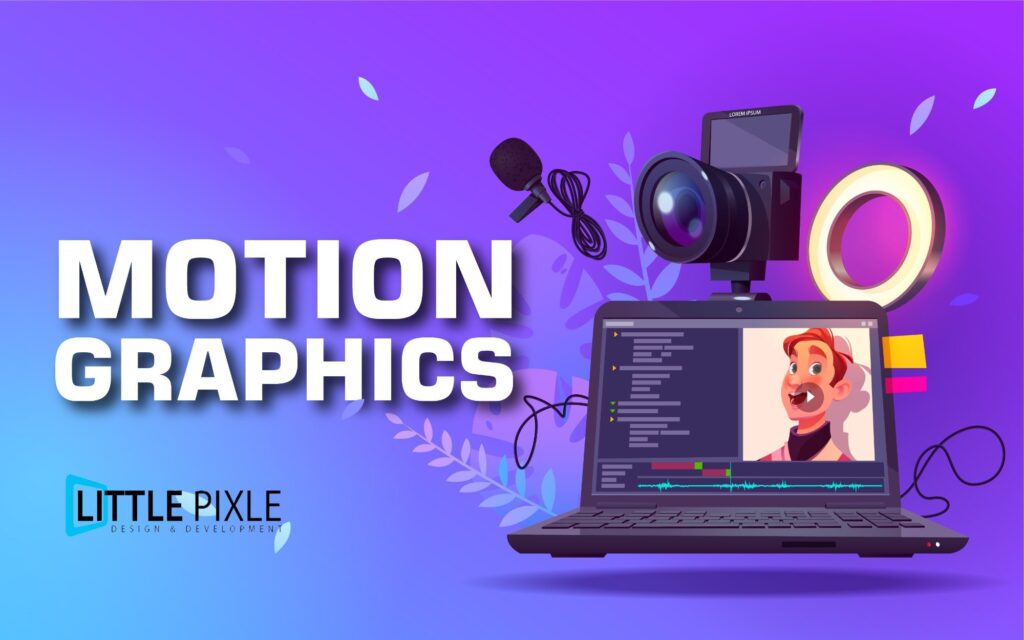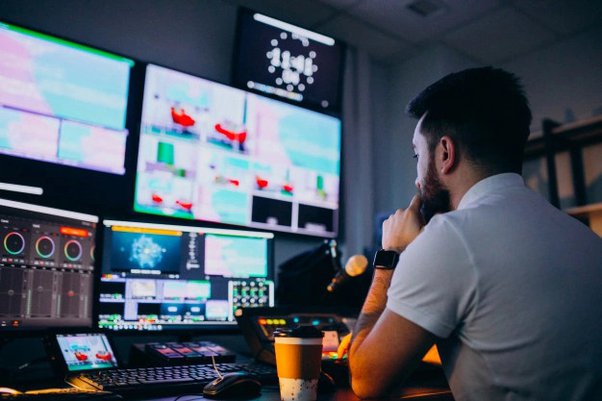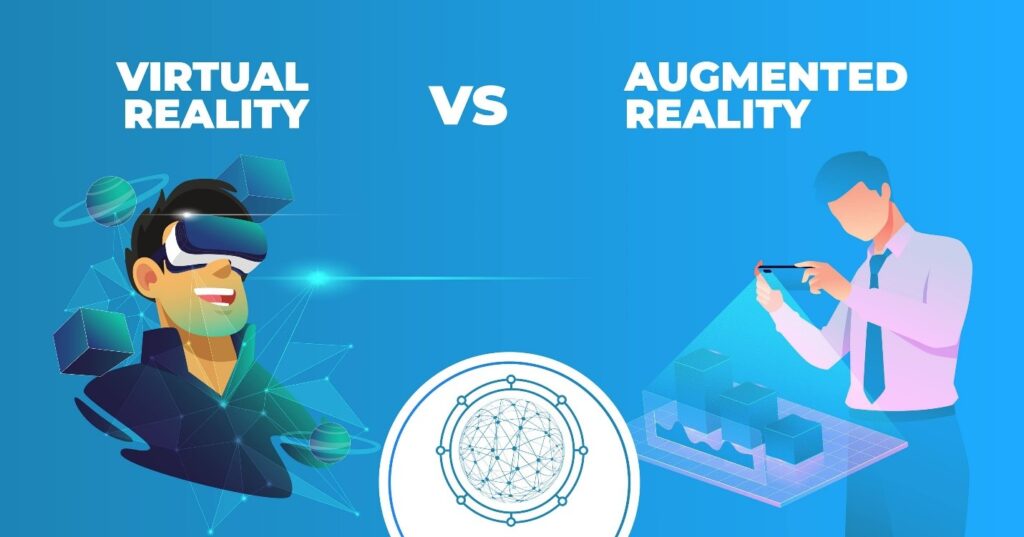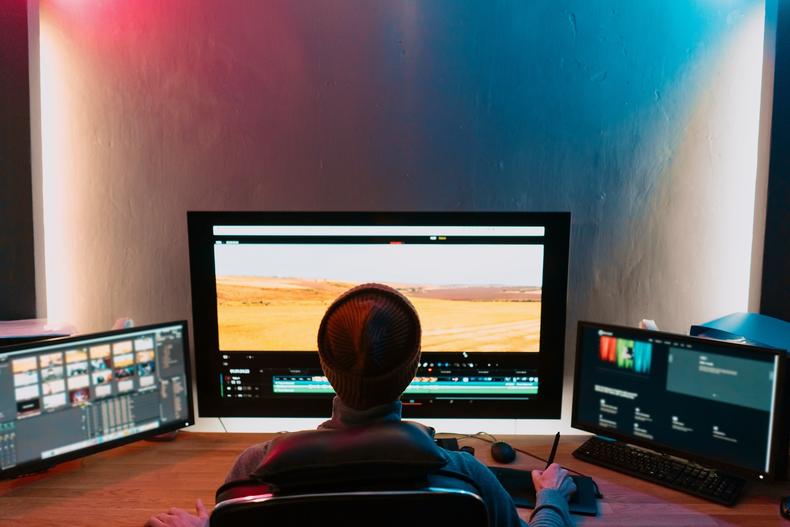Career After Video Editing

You can make your Career after Video Editing by choosing several options it can be exciting and rewarding. Especially if you want to explore different aspects of media production or creative industries. Editing is a versatile field that can lead to a wide range of career opportunities in various industries such as film, television, advertising, publishing, and digital media. Unlock your creative potential and transition into a fulfilling career tailored to your skills and passions. So, come to our institute(Global Institute of Computer and Technology) to make your Career in Video editing. Here are several career options you might consider to make your career after video Editing:
1) Motion Graphics Career After Video Editing:

If you enjoy the visual aspect of video editing, motion graphics design could be a better option to choose if you want to make your career after video editing. You’ll create animated graphics, titles, and visual effects for various projects including commercials, films, and web content. Elevate your career with opportunities in advertising, film, digital media, and beyond. Learn to craft animations, stunning visual effects, and compelling designs to attract your client.
Key Effects to learn about being a Motion Graphics Designer
As a motion graphics designer, mastering certain effects can significantly Boost your skills and make your work more impactful.
1) Understand keyframe animation is important for creating motion in your designs.
2) Explore many techniques like text reveals, typewriter effects, and text transformations.
3) Learn how to use shape layers to create logos, icons, backgrounds, and intricate motion graphics elements.
4) Experiment with 3D layers, cameras, lights, and depth of field to create immersive and dynamic animations.
5) Particle effects add realism and visual interest to your animations.
2) Film and Television Production:

You might choose to move into broader roles within film or television production, such as a producer, director, or cinematographer by editing their clips and videos. These roles involve overseeing the creative and technical aspects of production, which could be a natural progression from your editing experience. Entering the realm of film or television production opens up a wide array of opportunities for those passionate about storytelling and visual media.
Key Effects to learn about being a Film and Television Production:
In the context of film and television production, mastering some effects can greatly build your skills and make your career in film and television production.
1) Understanding visual effects is crucial for creating seamless and immersive scenes in film and television.
2) Practical effects involve physical elements rather than digital manipulation.
3) Understanding how to create and animate dynamic titles, logos, and graphics can add visual interest and professionalism to your productions.
4) Learn about camera techniques, shot composition, lighting setups, and mood creation to enhance the visual storytelling of your productions.
5) Costume design is crucial for defining characters and enhancing the authenticity of a production.
3) Content Creation Career after Video Editing:

Content creation involves generating various types of media content to engage and attract a target audience. Leveraging your editing skills, you could become a content creator for platforms like YouTube,TikTokk, or Instagram. You might produce your videos or work with brands and companies to create engaging content for their channels. Brainstorm ideas for content topics based on your audience’s interests, industry trends, frequently asked questions, and keyword research. Produce content that is informative, engaging, and well-researched.
key Effects to learn about being a Content creator
1) Smooth transitions between scenes or clips can improve the flow and pacing of your content.
2) Experiment with different transition effects like fades, wipes, slides, and zooms to create seamless transitions that keep viewers engaged.
3) Enhance the look and mood of your videos through color grading.
4) Create dynamic layouts by incorporating split-screen or picture-in-picture effects.
5) Explore basic visual effects techniques to add impact to your videos.
4) Post Product Supervision And Manager:
As a post-production supervisor or manager, your role is essential in ensuring the smooth and efficient completion of projects after filming wraps up. If you enjoy the organizational aspect of editing, you might transition into a supervisory or managerial role within post-production departments. This could involve overseeing a team of editors, coordinating workflows, and ensuring projects are completed on time and within budget. Here are some key aspects and responsibilities of this position:
Key effects to learn about being a Post Production
1) Understand different file formats and compression techniques used in post-production, including codecs, and container formats.
2) Develop strong communication skills to effectively liaise with clients, directors, producers, and other stakeholders throughout the post-production process.
3) Understand how to manage feedback and revisions while maintaining project timelines and objectives.
4) Gain knowledge of audio post-production processes, including dialogue editing, sound design, Foley recording, and mixing.
5) This knowledge will help you optimize file delivery and storage processes.
5) Freelance Work Career in Video Editing:

As a freelance video editor, you have the flexibility to work on a variety of projects for different clients. You could expand your services to include other aspects of video production, such as script writing, storyboard creation, or even full-scale production management.
Freelance work offers flexibility, autonomy, and diverse opportunities to showcase your skills and build a rewarding career
Key Effects to learn about being a Freelancer
1) Explore different transition styles and effects to add flair to your edits.
2) Experiment with wipes, fades, zooms, and other creative transitions to keep viewers engaged.
3) Basic animation skills can add dynamism to your videos.
4) Effective communication and project management skills are crucial for freelance success.
5) Understanding can allow you to add impressive visual elements to your projects.
6) Corporate Video Production Career After Video Editing:

Many businesses produce internal training videos, promotional materials, and other video content. You could work in-house for a corporation or as a freelance contractor, helping companies communicate their message through video. It
involves creating audiovisual content for businesses and organizations to serve various purposes. So, it include marketing, internal communication, training, and branding. Corporate marketing videos promote products, services, or the overall brand of a company. These videos may include promotional videos, product demonstrations, customer testimonials, and company overview videos designed to attract potential customers and generate leads.
Key Effects to Learn about being a Corporate Video Production
1) Videos capture and maintain audience attention more effectively than text or static images.
2) Consistent use of video content across multiple platforms and channels increases visibility and reinforces brand identity in the minds of consumers.
3) Video-based training and educational content are more engaging and easier to digest than traditional text-based materials.
4) Corporate training videos facilitate learning, improve retention rates, and standardize training across geographically dispersed teams.
5) Digital video platforms offer robust analytics tools that allow businesses to track and measure the performance of their video content.
7) Virtual Reality (VR) and Augmented Reality (AR):

These emerging technologies offer new opportunities for creative professionals. You could specialize in editing immersive VR experiences or creating AR content for marketing campaigns or entertainment purposes. VR technology creates fully immersive, computer-generated environments that users can interact with using headsets or other devices. AR applications range from mobile games and social media filters to practical tools for navigation, education, retail, and industrial applications. In retail, AR enables virtual try-on experiences, interactive product demonstrations, and in-store navigation, enhancing the shopping experience and driving sales. Users can experience a sense of presence and immersion in virtual worlds, allowing for highly engaging and interactive experiences.
VR offers unparalleled levels of immersion, allowing players to step into virtual worlds and experience games in a whole new way. AR is also used in industrial settings for remote assistance, maintenance, and training. It provide workers with real-time information and guidance in their work environment. The VR and AR industries continue to innovate and grow, with advancements in hardware technology, content creation tools, and user experience design driving increased adoption and investment. Future trends in VR and AR include advancements in hardware, such as lighter and more comfortable headsets, improved display technologies, and enhanced input devices.
8) Video Game Development:
Video game Development companies often require skilled editors to create cinematic sequences, trailers, and promotional videos for their games. This field could open up many opportunities to work on exciting and innovative projects.
Video game development is the process of creating interactive digital experiences for entertainment, education, or training purposes. It involves various disciplines working together to design, develop, and produce video games.
- The Video game development process typically begins with conceptualization, where ideas for the game’s concept, story, mechanics, and visual style are brainstormed.
- Game designers are responsible for defining the game mechanics, rules, levels, and overall gameplay experience.
- Programmers write the code that powers the game, including game logic, AI, physics, user input, and networking functionality.
- By leveraging the diverse skills of artists, designers, programmers, and other professionals, game developers can create immersive and engaging experiences.
How stable is the video editing field?

The stability of the video editing field can vary depending on many factors, including industry trends, technological advancements, and economic conditions. The demand for video content continues to grow across various industries, which include entertainment, advertising, marketing, education, and corporate communications. Businesses and individuals increasingly rely on video content to engage audiences and convey messages, there is generally a steady demand for skilled video editors. There are many video editors who work as freelancers, while others are employed by production companies, media agencies, or in-house creative teams. Those who adapt to new technologies and workflows are better positioned for long-term stability.
Overall, while the video editing field offers numerous opportunities for a rewarding career, maintaining stability requires continuous learning, adaptation to industry changes, and strategic positioning in the market. By staying proactive, honing your skills, and building strong relationships, you can increase your chances of long-term success as a video editor.
If you’re looking for consistency and stability above all else, as an in-house editor may be the right choice for you. With this type of role, you won’t have to worry about securing your contract to make ends meet. Video editors who diversify their skill set beyond basic editing, such as learning motion graphics, color grading, or audio editing. It can increase their value and versatility in the market. Having a broad range of skills can also provide more stability by allowing editors to adapt to different types of projects and client needs.



